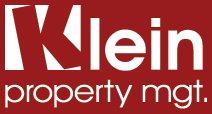Wilkin and Guttenplan is one of the preeminent accounting and consulting firms in the industry and we wanted to post one of their very informative blogs on our site.
Boards and the Importance of a Written Investment Policy Statement
By Maria Maurucio, CPA
It is no secret that CIRAs commonly operate using separate “funds” to manage their finances. Having an operating, deferred maintenance and replacement fund (to name a few) is instrumental for Associations to effectively budget, track and manage their finances and follow Internal Revenue Services interpreted guidelines. Each fund has its own unique purpose. For example, the purpose of a deferred maintenance fund is to accumulate funds for expenses that occur less frequently than annually (i.e. painting and power washing), when they arise, while the operating fund is maintained for day-to-day activity. The replacement fund on the other hand is established to ensure that the Association has the necessary money for future replacements of major common-area components such as roofs, balconies and decks. Associations often accumulate large amounts of cash over time in preparation for these expenses and the question is – What can or should the Board do with that cash to best serve the Association? The answer is – Invest and make it work for you! But there is a catch. Many governing documents limit the options Boards have for investing. In addition, Boards have a fiduciary duty to act in the best interest of the Association as a whole and consider the risk tolerance of the community and not necessarily that of individual Board members. Unfortunately, with those limitations, the investment options are often limited to those with little or no risk of loss of the principal investment. And of course, many Board members may not be knowledgeable when it comes to investing, and that is okay. To ensure that an Association’s assets are not compromised by current or future Board members’ decisions, Boards should consider creating a long-lasting investment policy.
Before we dive into how an Association can create its investment policy, it is important to know the following details. The Board has a fiduciary duty to the unit owners of the Association. This requires that the Board members act on behalf of the entire Association. A responsible Board should keep this in the forefront while considering the Association’s investment policy. In addition, the Board should consider the following ideas when drafting the Association’s investment policy.
Boards have a responsibility to act in the best interest of all unit owners. This is very important to reiterate because Board members must not let individual risk tolerance influence the Association’s financial matters. Therefore, the goal for investing money as a Board member is to limit the risk of losing the principal amount that has been invested. Boards should avoid investing in instruments with high volatility and high risk. The riskier the investment, the possibility of a higher return is greater, but it comes with an even higher risk that the principal may be lost. Therefore, investing in instruments with highest potential yield may not be what is best for the Association. Instead, having the notion to protect the principal being invested would be the best strategy, which may be contrary to investing one’s own money. The assets being invested are not just invested to maximize gains, but to manage risk while simultaneously accumulating funds. Therefore, Boards should not make investment decisions based upon their own investment biases. In addition, some Board members may be investment savvy, which can be great for Associations, but these Board members will eventually leave the Board. As these members leave, their investment knowledge leaves with them which can cause an unstable, ineffective investment management.
Now, why would an Association want a written investment policy? Well, simply put, it is to counteract the possible mistakes by Board members and provide a consistent long-term investment strategy. One of the more common mistakes that Boards make is the absence of proper documentation of their financial decisions. Having an investment policy will help provide the Association with the necessary framework to guide current and future Board members who either have zero or little investment experience. It will provide consistency and longevity of the Association’s investment strategies. In addition, it will also hold the Board accountable for their investment decisions and ensure they are acting within their fiduciary duty guidelines to the unit owners of the Association. Most importantly, investment policies will help protect and ensure the safety of the Association’s assets.
The next question that should be asked is “how we develop an investment policy?” An important criterion when it comes to investing is to ensure that the investment provides safety of the principal while obtaining a reasonable return on investment. Thus, it is important to involve professionals in other fields as well as conducting further financial analysis to make sure the investments meet that criteria.
Associations could develop their investment policies by following these steps:
- Determine if existing permanent documents have language that can contradict the forthcoming investment policy
- Discuss the level of safety, risk and insurance protection the Association is comfortable with taking into consideration the language found in the governing documents
- If the investment is being made with the replacement fund’s cash, always consider the timing of current and future replacement needs when choosing an investment vehicle.
- Inquire with investment professionals regarding common types of investments, financial safety, average rates of returns and other relevant information for Associations
- Draft an investment policy based on these guidelines
- Consult legal counsel and a CPA firm to review the policy
- Finalize the investment policy and make it part of the Association’s permanent documents
- Determine how the Association’s current assets will fit into the newly formed investment policy
Again, it is imperative that Associations involve professionals when developing a written investment policy. Each step listed above involves many different people working together to create a package fit for the Association’s investing needs. At a minimum, the Association should consult their attorneys, accountants and financial advisors when developing the investment policy.
Attorneys can help sift through the governing and permanent documents as stated in the first step to interpret the language and highlight areas that may be relevant to the development of the policy and further financial strategies. This is a very important first step as any contradiction to the governing documents may cause confusion and disarray for future Board members. This will also help to avoid potential legal issues.
Once the Board knows and understands the limitations or possible guidelines outlined in the governing documents, the Board should consider the recommendations made by the engineer as part of the reserve study. Associations are advised to have a reserve study done by an engineer as they can map out when major repairs and replacements will be needed. This is important to know when investing for the replacement fund as these anticipated major projects will help the Association determine maturity dates for long-term investments. For example, if roofs are due to be replaced within the next year, the Association would not want to invest their replacement fund money in long-investments, but maybe think about investing in short-term investments. Vice versa, if no major projects are scheduled for the next several years, the Association can afford to invest in long-term investments. The only way to accurately plan their investments in accordance with the engineering study is to have the study updated every three to five years as inflation and unforeseeable damage may cause replacement information to change. Therefore, it is important to keep the reserve study current.
Once the Association has its latest reserve study finalized and has consulted with its engineer, Board members should then consult financial advisors, particularly advisers who know the industry. Advisors with such experience will be able to recommend and advise which investments are right for the Association.
Once the Board has an overall idea of what investments are available and what constraints they have when talking to the financial advisor and engineers, the Board can now draft an investment policy. The policy should be clear as to what can be invested, what investments are permitted and not permitted, who makes the investment decisions, and how to monitor the investment portfolio. Once drafted, the Association should once more involve their attorneys and accountants. The attorneys can review the document and make sure it again does not violate the governing documents while the accountants can make sure that the Association is following the best practices of the industry while maintaining the long-term financial management goals of the Association.
Finally, the Board must follow their governing document requirements for adopting such a policy in order to finalize the policy and have it kept as a permanent document. A written investment policy will guide Board members on how to make financial decisions for years to come. Board members and management can change as can the overall economic environment, which is why having a document such as an investment policy can help prevent the possible mismanagement of an Association’s assets. These factors should not change the trajectory of the Association’s investment strategy. Low interest rates, for example, should not make Boards wary of investing. Any return is better than no return. It’s these little notions that can make investment strategies inconsistent with changing Board members but having a clear and concise investment policy in place will create consistency and stability when it comes to an Association’s investments.
At Klein Property Management we work with our boards to assist them so that they can better understand their roles as Board Members and bringing quality of life to their community or building. Please give us a call at 732 446-0611 if we can be of assistance or email us at info@kleinpropertymanagement.com.




